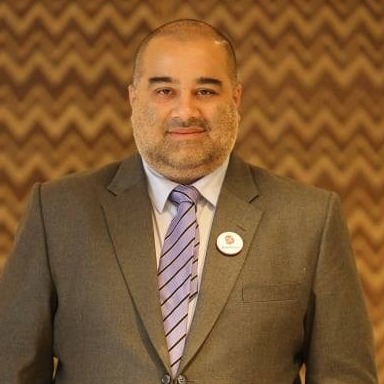Columns
Give, and you will receive
Nepal's sahujis can make a difference by giving back to the community in this hour of need.
Sumana Shrestha & Sakar Pudasaini
Charitable giving by the wealthy is a critical piece of the social landscape around the world. While private giving cannot, and should not, replace the state’s social safety net, it can fill inevitable gaps and fuel social sector innovation. As business owners, we believe private enterprises and their owners already contribute to building a prosperous society by addressing market needs and generating livelihood. We also believe the motivation to earn profits is an important driver of innovation and creativity. Private sector innovation improves the quality of life on a massive scale. Thus, we do not begrudge Nepali business families and private sector leaders their prosperity.
Yet, no business succeeds alone. Any businessperson’s success depends on the community’s willingness to purchase their products, obey the laws that allow them to prosper, and provide human resources to work in their businesses. This mutual dependence imposes a moral obligation on private sector leaders to give back, especially to support those pushed to the margins by the same system facilitating their prosperity. This obligation exists at all times. But it is all the more pronounced during times of crisis.
Press and visibility
We are dismayed by how little wealthy business families and private sector leaders are contributing to help Nepal even as hundreds of people die every day. Cash contributions by private sector leaders have been minuscule in comparison to their earnings—and negligible in comparison to their net worth. At the same time, they have sought outsized press and visibility for these minor contributions. The limelight and fanfare surrounding these insignificant contributions suggest that Nepalis have very low expectations of private sector leaders. Even a contribution of Rs10 million by someone worth billions is not an event deserving of public celebration.
Social recognition is an important driver of philanthropic and humanitarian giving by individuals. We have no ideological objections to celebrating such contributions. But we do object to the low standards. It is time to expect more of those who have benefited the most from our communities. We call on Nepal’s wealthiest individuals and families to make a public commitment to immediately deploy at least 1 percent of their net worth to ameliorate the raging humanitarian crisis. That would be a commitment worthy of public celebration.
Behind closed doors, private sector leaders respond to calls for increased giving by arguing that their social obligations are fulfilled by tax payments. Everyone pays taxes which fund the public infrastructure—roads, bridges, police—essential to our lives and our businesses. Those who benefit disproportionately from the existing social order have an additional obligation. Private sector leaders should also remember that the ‘we pay our taxes'’ argument is asking for social pressure on governments to raise taxes on the wealthy. We see this pressure building around the world today. In the United States, a backlash against attempts by the ultra-rich to separate themselves from their social obligations is likely to result in significant increases to both corporate and individual taxes this year.
Private sector leaders around the world have given away significant amounts of their wealth in response to the pandemic. Aziz Premji of Wipro committed Rs15.4 billion, almost 2 percent of his net worth, to philanthropy last year. MacKenzie Scott, the Amazon billionaire, has given Rs660 billion, about 10 percent of her net worth, to bolster basic services such as those addressing hunger and homelessness during the pandemic. Just this week, cryptocurrency billionaire Vitalik Buterin contributed Rs110 billion, just under 1 percent of his net worth, to fund Covid-19 relief work in India. Such significant and impactful philanthropic contributions matter anywhere, but would go even further in Nepal where social services and the safety net are weaker.
But money alone is not enough. This is also the time for private sector leaders to demonstrate leadership by contributing their know-how, networks and talents. Private sector leaders often claim that they are more adaptive and thus better problem solvers than governments. This is often true. Now, as people are desperately looking for solutions, is the time to demonstrate these skills and buttress these claims. The leadership vacuum created by the lack of government action should not be used by private sector leaders to excuse their own inaction. If private sector leaders cannot demonstrate their greater efficiency and creativity in the middle of a crisis, the public and the media are justified in doubting these claims in normal times.
Rs30 million for oxygen plant
Private sector leaders often justify their disproportionate wealth accumulation by noting that they are good at sensing opportunities and taking the risks needed to realise potential. A global pandemic, a great crisis, is also an opportunity for private sector leaders to earn the nation’s respect by demonstrating leadership and solving problems. In just one example, fulfilling the critical care oxygen needs of a city the size of Dhangadhi through a several-months-long Covid-19 outbreak—including flying in an oxygen factory, setting it up, staffing it and providing transportation and running costs—is projected to cost about Rs30 million.
This amount is barely a dent in the portfolio of many business families. In another example, private sector leaders can organise the logistics and cover hardship pay for hundreds of frontline medical workers, surging them into hotspots, including rural areas. Such complex action would leverage not only the resources, but also the abilities of private sector leaders to plan and orchestrate large-scale operations.
Just as COVAX was created by the world's wealthiest countries to ensure vaccine equity, Nepal’s wealthiest families could create a vaccine philanthropy mechanism. Donating 10 percent of Nepal’s vaccine needs to the government, which would cost about Rs350 million, is still less than 2 percent of the reported net worth of Nepal’s wealthiest person alone. Even matching COVAX’s commitment of providing vaccines to 20 percent of the population would still cost less than 1 percent of the combined worth of Nepal’s 20 wealthiest business families. How many of Nepal’s private sector leaders are bold enough to seize these opportunities and lead the way? The whole nation is waiting to find out.




 23.51°C Kathmandu
23.51°C Kathmandu
















